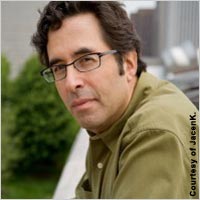President Obama and Secretary of State Hillary Rodham Clinton are the most admired man and woman, a new poll shows. In America, billionaires are giving away the bulk of their fortunes. The world’s largest soda maker is working on water projects in Africa. And an American photographer captures diversity in the Muslim world.
 Obama, Clinton Most Admired
Obama, Clinton Most Admired
(mobile version)
For the third year in a row, a USA Today – Gallup poll has found that Barack Obama is the most admired male public figure. The most admired woman is Secretary of State Hillary Rodham Clinton, who has held the title 15 times since 1992. The survey was conducted between December 10-12, and is based on telephone interviews with a random sample of 1,019 adults. Participants were asked to name the man and woman living anywhere in the world they most admired.
A Billionaires’ Pledge
(mobile version)
The two richest men in the United States, Bill Gates and Warren Buffett, launched The Giving Pledge in June 2010, encouraging other billionaires, in the United States and abroad, to give away the bulk of their fortunes to philanthropic causes. As of December 2010, 57 billionaires have joined their campaign.
Coca-Cola’s Water Projects
(mobile version)
Cola-Cola Company, the world’s largest beverage maker, has formed a partnership with the U.S. Agency for International Development and the U.N. Development Programme to launch or expand water projects in eight African countries. The World Health Organization estimates that 1.1 billion people—including more than 300 million Africans—do not have access to clean water.
 Photo Gallery: The Diversity of the Muslim World
Photo Gallery: The Diversity of the Muslim World
(mobile version)
American photographer Derek Brown, whose work has been featured in The Economist and other major publications, traveled to 28 countries for more than 18 months to photograph the diversity of the Muslim world. An exhibit of his work at the cafe Busboys and Poets in Washington drew raves. Andy Shallal, an Iraqi American and the owner of Busboys and Poets noted, “It makes people realize the Muslim world is beyond the Middle East — it’s far beyond that.”





